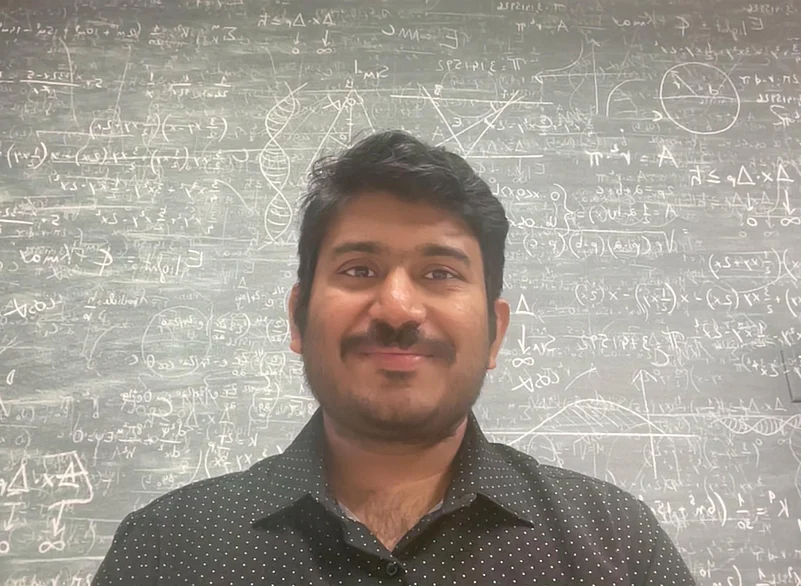In recent years, deep learning has transformed Natural Language Processing (NLP), search retrieval, and ranking by enabling more precise, context-aware, and efficient systems. Rama Krishna, an expert in machine learning and artificial intelligence, has shared his insights into how deep learning has catalyzed a revolution in these fields, unlocking new possibilities for understanding and processing language at scale. He emphasizes that deep learning has become central to creating search systems that are not only more accurate but also deeply attuned to the nuances of human language and intent.
Understanding the Role of Deep Learning in NLP
According to Rama Krishna, deep learning’s role in NLP is foundational because it allows machines to process and interpret language with a level of sophistication previously unattainable. Traditional language processing models were limited by their inability to fully comprehend context, nuance, and ambiguity in human language. Deep learning, however, uses neural networks, transformers, and models like BERT and GPT to grasp meaning on a deeper level by learning patterns from vast amounts of text data.
"Deep learning allows us to model language contextually, which is a game-changer," explains Rama. "It’s not just about understanding words but understanding their relationships in a broader, more meaningful sense. This capability is what makes today’s NLP so powerful."
Through deep learning, NLP models are now able to perform complex language tasks, including sentiment analysis, summarization, machine translation, and more, by considering context across sentences and even paragraphs. This depth of understanding opens new avenues for creating advanced search and retrieval systems.
Enhancing Search Retrieval with Deep Learning
Search retrieval has always been at the heart of information processing, but deep learning has elevated it by allowing for retrieval based on semantic meaning rather than simple keyword matching. Rama Krishna highlights that deep learning models in search retrieval can comprehend the intent behind a query and retrieve relevant results by going beyond exact term matches.
"Traditional search engines operated on a string-matching basis, which often yielded results based on sheer frequency rather than relevance," he notes. "Deep learning enables us to prioritize understanding over mere matching, so the system retrieves information based on what the user actually meant, not just what they typed."
Deep learning-based retrieval models, such as dense retrieval using transformer-based embeddings, allow for high-dimensional representations of text, capturing subtle differences in meaning. For example, models like Sentence-BERT and Dense Passage Retrieval (DPR) create embeddings for queries and documents, mapping them to a high-dimensional space where similar meanings are closer together. This technique, Rama explains, allows for more precise and contextually accurate information retrieval, especially for complex queries and conversational search.
The Role of Ranking in Enhancing User Experience
Rama Krishna emphasizes that while retrieval brings relevant documents to the surface, effective ranking is essential for delivering a quality user experience. Ranking algorithms prioritize results based on relevance, context, and user intent, enabling users to access the most relevant information quickly. Deep learning, particularly with the advent of RankNet, LambdaRank, and BERT-based ranking models, has made ranking models far more sophisticated by taking multiple layers of context and relevance into account.
In Rama’s view, deep learning models for ranking are integral in refining search results further by evaluating each document's relevance in relation to the query. These models analyze everything from document content and meta information to user engagement patterns, ensuring the most relevant content is presented first.
"Deep learning-driven ranking models go beyond superficial analysis," Rama explains. "They evaluate relevance through multiple lenses, creating a ranking hierarchy that optimizes both accuracy and user satisfaction."
Moreover, deep learning has made it possible to implement real-time ranking adjustments based on user feedback. This adaptability ensures that search engines can constantly refine their results based on actual user behavior, which Rama sees as a critical factor in enhancing long-term relevance.
The Power of Transformer Models in NLP, Retrieval, and Ranking
One of the most revolutionary developments in deep learning has been the rise of transformer models, such as BERT, GPT, and T5. These models have reshaped how NLP systems handle language by making it possible to consider bidirectional context, thus capturing the relationships between words in ways that were previously impossible. Rama Krishna is particularly excited about how transformer models have improved the performance of search retrieval and ranking systems by creating deep, contextually aware embeddings.
Transformers use self-attention mechanisms to weigh the importance of words based on their relationships to one another. This allows models to understand complex queries and deliver contextually relevant results. In applications like question answering, conversational agents, and entity recognition, transformer models have set a new benchmark in understanding natural language.
"Transformers enable models to consider each word's importance based on the entire context," says Rama. "This attention mechanism is what allows NLP systems to perform complex tasks with such precision, making it invaluable for search and ranking."
Multimodal Search and Deep Learning
Rama Krishna also notes the potential for multimodal search, where deep learning enables the integration of text, image, video, and audio data into a single, unified search interface. This approach allows users to search across multiple formats seamlessly, improving accessibility and relevance in digital ecosystems where information is often multimedia-rich.
"Multimodal search is the future," Rama asserts. "Deep learning allows us to bridge gaps between different data types, creating more inclusive and versatile search experiences."
Deep learning models capable of processing multimodal inputs can analyze correlations between images, text, and other data types, making it possible for users to retrieve, for instance, an image based on a text query or vice versa. According to Rama, this capability could revolutionize sectors like e-commerce, education, and healthcare by enabling more intuitive and comprehensive searches.
Looking Ahead: The Future of Deep Learning in NLP and Search
Rama Krishna believes the future of deep learning in NLP, search retrieval, and ranking lies in personalization and continual learning. Personalized search, where results are tailored to individual preferences and past behavior, is already showing promise, but deep learning offers more nuanced possibilities for creating user-centric experiences. In addition, continuous learning of models will allow search engines to evolve in real-time, dynamically improving based on new data and interactions.
"Personalized and adaptive search systems that learn from user behavior in real time are the next frontier," says Rama. "As deep learning continues to evolve, it will enable truly intelligent search systems that provide not only information but insight tailored to individual needs."
Rama Krishna’s insights into the role of deep learning in NLP, search retrieval, and ranking highlight a paradigm shift in how information is processed and delivered. By enabling systems to understand language contextually, retrieve information based on meaning, and rank results with a sophisticated awareness of relevance and intent, deep learning has redefined the possibilities of search. Rama’s views underscore the transformative power of deep learning as it continues to shape the future of information retrieval, making it more intelligent, responsive, and aligned with human needs. Through his work, Rama Krishna advocates for ongoing innovation and the expansion of deep learning to create a more accessible, efficient, and insightful search experience for users worldwide.


























